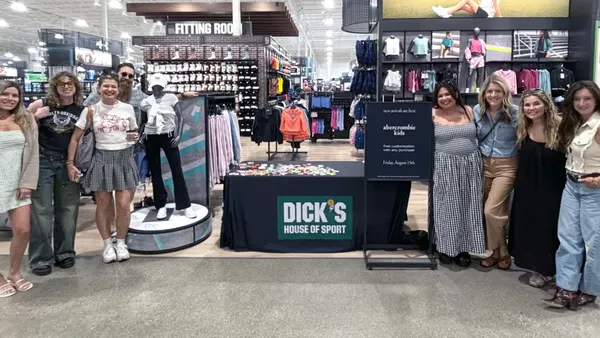Dive Brief:
-
A new study by Liftoff shows that Amazon’s Prime Day has a significant impact on how consumers use shopping apps, even those not related to Amazon. Overall, shopping app installs decreased around Prime week, but among consumers who did install a shopping app, the number of users who made a purchase within six weeks increased by 46.76%, according to a company blog post.
-
That being said, Prime Day itself had a negative impact on the installation of non-Amazon shopping apps. Shopping apps not associated with the e-commerce giant see a drop in both purchases and installations on Amazon’s big day, with purchases falling 12.84%, the study found.
-
Interestingly, the day after Prime Day proved to be an incredibly successful one for other retailers' shopping apps, as purchases spiked by 70.69%.
Dive Insight:
Amazon’s signature Prime Day event has a reach beyond just the e-commerce giant. Not only does it pose a threat to other retailers who fear missing out on the big sale, it has also sparked several imitation events by retailers hoping to drive up their own sales.
Concerns surrounding the self-made holiday are not ill-founded. Research by Sense 360 revealed that Amazon’s Prime Day actually led to decreased traffic in brick-and-mortar stores by users of Amazon’s app. Among the most affected were Sears (36% drop), J.C. Penney (34%), Kohl’s (31%), Target (28%), Home Depot and Lowe’s (24%), Walmart (23%), Best Buy (19%), Barnes & Noble (11%) and Macy’s (9%).
Prime Day’s effect on the mobile apps of other retailers presents plenty of possibilities, too, though — albeit not on Prime Day itself. For Amazon, mobile app usage doubled during Prime Day this year, indicating that the e-commerce giant is making mobile use a norm for consumers looking to move quickly. With shoppers becoming acclimated to the ease of mobile usage, retailers would do well to ensure that their own apps offer the same convenience so that they are able to capitalize on the 70% spike that Liftoff’s data showed.
Indeed, poorly functioning e-commerce sites and slow-to-load mobile apps can cause consumers to turn running, with 68% of consumers willing to abandon a purchase due to basic functionality issues and 60% of Gen Zers unwilling to use a website or app that is too slow to load. Overall, however, Liftoff’s data seems to indicate that Prime week is a chance for other retailers to also get involved in the summer spending event.
Although challenging Amazon on Prime Day itself can be successful, most retailers can’t match the e-commerce giant on price. For example, in electronics — the biggest category this Prime Day — Best Buy got closest to challenging Amazon on price and was still 27% more expensive, according to Bloomberg.
Either way, there is clearly potential for other retailers to benefit during Prime week, especially in the mobile market. Retailers who focus on making their app as user-friendly as possible will most likely profit from it.












